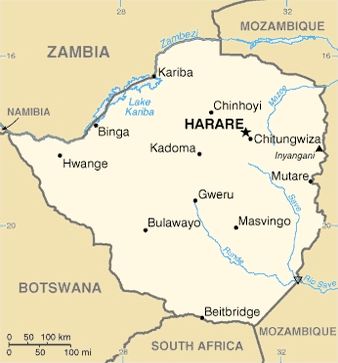In the wake of last week's power sharing agreement signed by Zimbabwe's President Robert Mugabe and rival opposition leaders Morgan Tsvangirai and Arthur Mutambara, questions have arisen as to what kind of government this unlikely alliance will produce, who will hold the balance of power within it, and whether it is even workable in the long-term.
On the face of it, the three parties -- Mugabe's ZANU-PF, Tsvangirai's MDC and Mutambara's splinter MDC faction -- look irreconcilably split on a number of key issues. The MDC's economic plan, for instance, calls for changes of leadership in key positions, as well as an international "technical assistance team" to help with design and implementation of new policies. For Mugabe, who has long opposed "external assistance" as a creeping form of neocolonialism, this would be a bitter pill.
Reform is also likely in the mining industry, with MDC policy favoring a model driven by private sector investment. According to its official policy document, the party "does not believe the government should be involved in running businesses and . . . will restore title in full to all companies." This is a distinct shift from the ZANU-PF strategy, which has in principle supported state control over key concessions, with an emphasis on local ownership.

